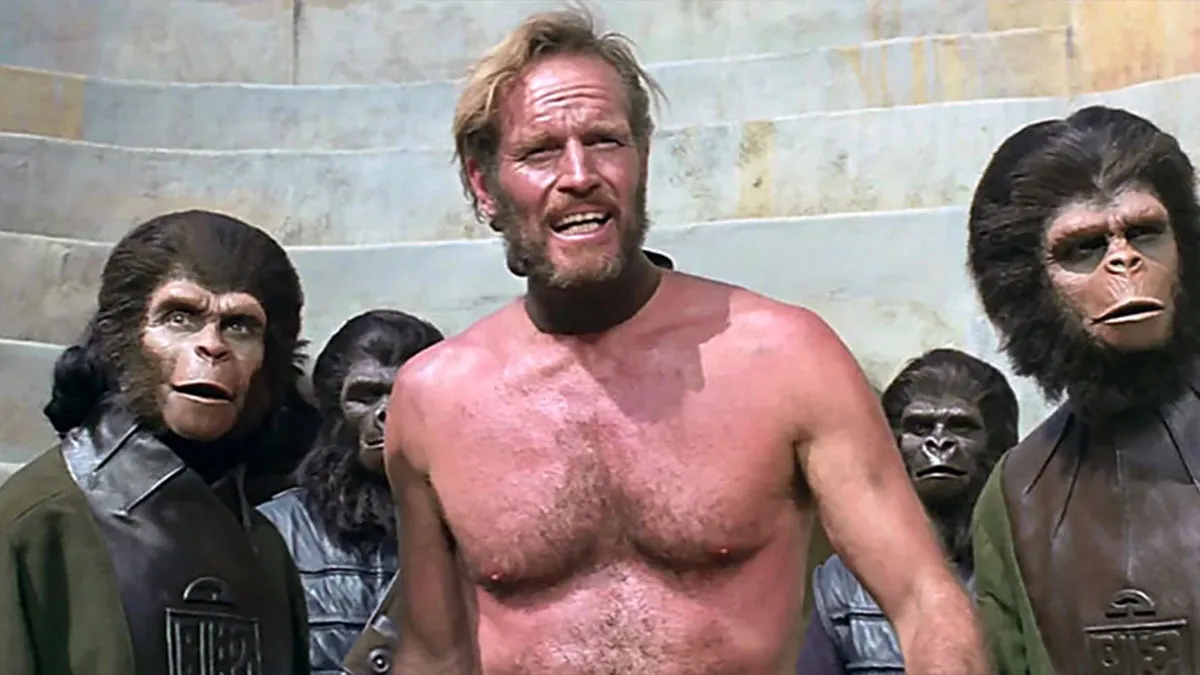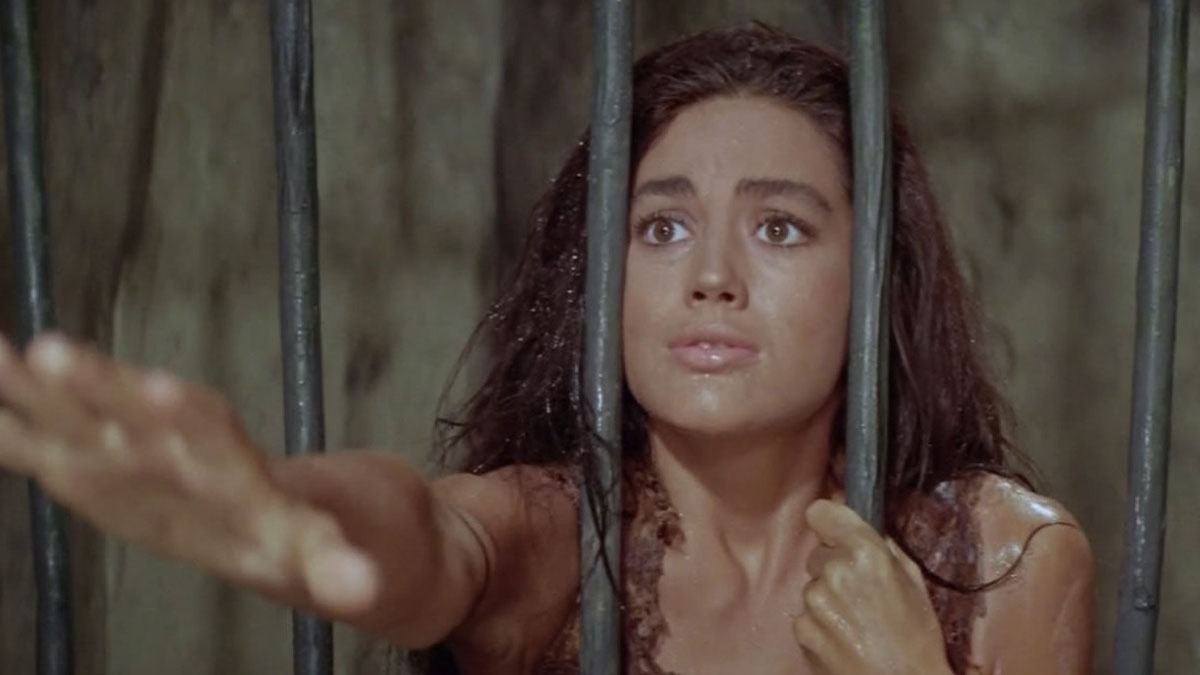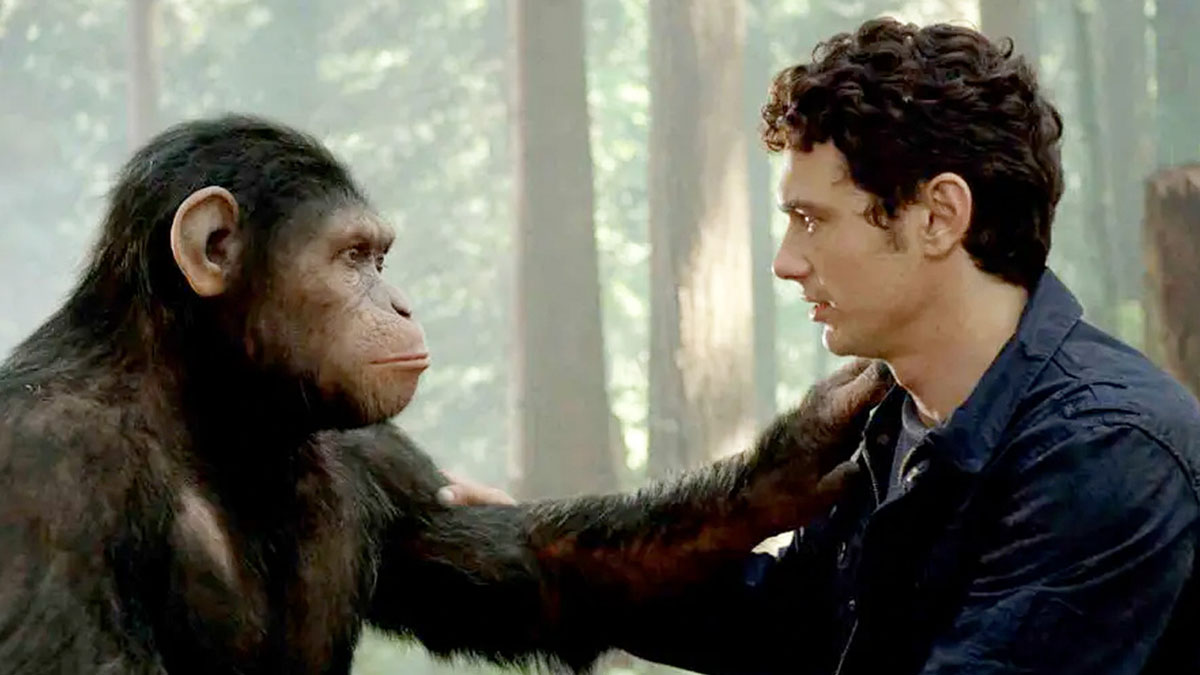
I’m diving into the captivating world of Planet of the Apes, a franchise that has been evolving since its debut in 1968, based on Pierre Boulle’s novel La Planète des singes from 1963. Each transformation varies, with some being highly praised, others not so much. The series is extensive, and I thought it would be helpful to provide a guide for watching the Planet of the Apes movies in the right order.
Best Planet of the Apes movie watch order as of 2025
This author advises viewing the films in their original release sequence to fully experience the story as it was conceived. However, if you prefer a chronological approach, begin with Rise of the Planet of the Apes (2011). Continue with Dawn of the Planet of the Apes (2014), War for the Planet of the Apes (2017), and Kingdom of the Planet of the Apes (2024). Once you’ve completed these, delve into the original series, starting with Planet of the Apes (1968), followed by Beneath the Planet of the Apes (1970), Escape From the Planet of the Apes (1971), Conquest of the Planet of the Apes (1972), and concluding with Battle for the Planet of the Apes (1974).
Original Planet of the Apes movie watch order

The initial success of Planet of the Apes, both critically and commercially, paved the way for the entire franchise and solidified its place in movie history. To this day, the original film continues to be a strong contender in science fiction and social commentary. It’s debatable if humans have learned from these allegorical films, but they certainly remain engaging and enjoyable to watch. (I have my doubts that much has changed.)
1. Planet of the Apes (1968)
Kicking off our Planet of the Apes movie watch sequence, we start with the initial film, which premiered in 1968. In this production, a team of astronauts faces a crash landing on an unusual planet where apes are the intelligent beings and humans are speechless, primitive figures. The main character, George Taylor (portrayed by Charlton Heston), gets captured and closely observed by the apes, who are taken aback by his speaking abilities. With the assistance of two compassionate chimpanzees named Zira and Cornelius, Taylor manages to break free and embarks on a quest for explanations. The movie concludes with an unforgettable twist – no spoilers shared here.
The movie earned an Academy Award for its exceptional makeup work and was additionally nominated in the categories of Best Costume Design and Best Original Score – categories that showcased some groundbreaking experimentation. It’s definitely worth your time to watch this film, particularly for its innovative score.
2. Beneath the Planet of the Apes (1970)
In continuation of the previous story, Beneath the Planet of the Apes commences with astronaut Brent (James Franciscus) accidentally landing on the same post-apocalyptic Earth, in pursuit of Taylor. He encounters a society of intelligent apes on the verge of conflict, and uncovers an underground lair inhabited by deformed humans who worship an old atomic bomb. Quite peculiar, isn’t it? The film undeniably reflects the Cold War anxieties prevalent during its era. However, it falls short in comparison to the original, as indicated by its 37% rating on Rotten Tomatoes.
3. Escape from the Planet of the Apes (1971)
In the third installment of the series, titled “Escape from the Planet of the Apes,” the narrative undergoes a complete transformation. Following the annihilation of Earth, three intelligent apes – Zira, Cornelius, and Milo – journey back to 1970s America via time travel, only to land in bustling Los Angeles. Initially, they are treated like celebrities, but as suspicions grow about their outsider status, the government starts to view them with fear. Although it lacks the grim impact of the first two films, this movie manages to maintain its appeal remarkably well and represents a significant improvement compared to the previous installment.
4. Conquest of the Planet of the Apes (1972)
1972’s “Planet of the Apes: Rise of the Simians” unfolds in an almost-future America where apes have fallen into servitude. Caesar, born to Zira and Cornelius, endures mistreatment at a circus ringmaster’s hands. However, witnessing a fellow gorilla being tormented by humans ignites his determination to instigate a bloody uprising against their cruel masters. The film’s social critique is rather overt in this case. J. Lee Thompson directed the movie, and it starred Roddy Macdowell, Don Murray, and Ricardo Montalban.
5. Battle for the Planet of the Apes (1973)
The final installment in the original Planet of the Apes saga, Battle for the Planet of the Apes (1973), takes place many years following the ape rebellion. In this time, Caesar governs an uneasy truce between apes and the few remaining humans. However, peace seldom endures, as animosities resurface, particularly when a band of mutated, radiation-affected humans seek retribution. Although it concluded on a hopeful note, the film left viewers underwhelmed, which might be attributed to the producer Arthur P. Jacobs’ intention to make this finale more family-friendly compared to the violent, almost R-rated Conquest. Nevertheless, the series struggled to find closure with this movie, and overall, it ended with a lukewarm reception.
6. Planet of the Apes (1974 live-action TV series)
The 1974 television adaptation of Planet of the Apes, airing after the release of Battle for the Planet of the Apes, endeavored to maintain the franchise’s momentum. This new series, set in another future scenario, portrayed a world where astronauts crash-landed on an Earth governed by apes, forming alliances with a compassionate chimpanzee named Galen. The show adapted the initial film’s concept for television, although it didn’t quite capture the excitement of the original movie. While it presented intriguing concepts and featured Roddy McDowall reprising his role as Galen, the series had difficulty finding its footing. Like Battle, it toned down the series’ darker aspects, resulting in a repetitive feel. Ultimately, it was canceled after airing 14 episodes.
Reboot Planet of the Apes movie watch order

If you enjoyed the original Planet of the Apes movies, you might find the reboot quite impressive. Rick Jaffa and Amanda Silver, the duo behind the production and writing, drew inspiration from real-life instances of apes living with humans and recent advancements in genetics research for this new series. Consequently, the science fiction aspect remains, but these films are even more compelling due to their connection to current scientific and technological developments.
1. Rise of the Planet of the Apes (2011)
After spending several years in development, Rise of the Planet of the Apes successfully relaunched the franchise by tracing its origins. James Franco portrays a researcher creating an Alzheimer’s treatment (introducing our genetics innovation angle), unknowingly enhancing the intelligence of a chimpanzee named Caesar. As Caesar becomes increasingly conscious of his confinement and the harshness of his environment, he initiates a rebellion that paves the way for human civilization’s decline. One of the film’s standout features is the remarkable motion-capture performance from renowned movement actor Andy Serkis, who has previously captivated audiences as Golem in The Lord of the Rings.
2. Dawn of the Planet of the Apes (2014)
Ten years post the Simian Flu disaster, which nearly eradicated humanity and wrecked global structures, Caesar resides with a flourishing ape community in Muir Woods, on the outskirts of San Francisco. A band of human survivors, including Jason Clarke, Gary Oldman, and Keri Russell, appear, asking Caesar for permission to access a dormant hydroelectric facility within ape territory. By reviving it, they could reinstate power to the city humans are attempting to rebuild. Caesar finds himself in a difficult predicament, balancing the need to safeguard his kin while potentially establishing a delicate alliance.
3. War for the Planet of the Apes (2017)
Woody Harrelson, who isn’t typically known for playing villains, plays a ruthless Colonel leading the militant faction Alpha-Omega in this film. After the Battle of San Francisco, Alpha-Omega targets Caesar’s colony. As Caesar leads his people across the desert to avoid capture, he learns that his family has been taken, which changes everything. Initially, the mission is about protecting the colony, but it transforms into a personal quest to rescue his captive family and confront the man responsible. The film also contains graphic depictions of torture and enslavement of apes. However, despite these intense scenes, War for the Planet of the Apes offers an intelligent blockbuster instead of a predictable one.
4. Kingdom of the Planet of the Apes (2024)
In a time far removed from the apocalyptic Planet of the Apes war, our world has shifted dramatically, with intelligent apes reigning supreme as Earth’s dominant species, while humans are relegated to a life hidden in the shadows. As a young chimpanzee named Noa, I find myself witnessing the brutal attack on my village by a ruthless gorilla gang led by Sylva, leaving me bereft of my father and community. Fueled by determination to save my abducted kin, I am joined on this perilous journey by Raka, a gentle orangutan, and Mae, a resourceful human ally. This thrilling adventure is skillfully directed by the talented Wes Ball.
Standalone Planet of the Apes movies and TV shows
If you’ve finished watching the original Planet of the Apes movies and their reboots, there are additional standalone films and TV shows that you might enjoy to fully complete your viewing experience. Consider these as a separate category, ideal for viewing after you’ve caught up with the main series. Think of it as an extra bonus round!
Planet of the Apes (1975 animated TV series)
The 1975 animated TV series based on Planet of the Apes brings the dystopian story to Saturday morning cartoons in an unconventional move for a cartoon series. With a limited budget, the show portrays the adventures of astronauts stranded in an ape-led society as they explore this peculiar world. While it’s nostalgic, it might be best to place it at the end of your watch list or avoid it unless you’re a completionist. And for those who are, we tip our hats to you!
Saru no Gundan (Army of the Apes) (1974 Japanese live-action TV show)
Did you know that the Japanese audience took a liking to the Planet of the Apes series? Their enthusiasm for the original films even led to the release of an extended cut of Conquest of the Planet of the Apes. This series was well-received due to its cross-cultural interpretation of the Planet of the Apes storyline. The Japanese live-action adaptation, consisting of 26 episodes, follows a narrative similar to that of Planet of the Apes, but without direct references. The first episode opens with three humans emerging from cryogenic sleep, finding themselves in a world governed by intelligent and articulate apes. They’re immediately imprisoned, left bewildered about their circumstances. Although not entirely unique, this series managed to complete its run successfully, unlike the live-action U.S version.
Time of the Apes (1987) (Saru no Gundan compilation film released in the U.S.)
In 1987, Time of the Apes assembled episodes from the 1974 Japanese live-action TV series “Saru no Gundan” into a feature film. Although it wasn’t an original production, this movie provided U.S. viewers with a glimpse into the Japanese interpretation of the Planet of the Apes concept.
Planet of the Apes (2001)
In our suggested viewing order of the Planet of the Apes series, we reach Tim Burton’s 2001 reimagining of the original film as the final stop. Indeed, this movie was directed by the distinctive visionary, Tim Burton. Reflecting his signature style, it’s a captivating watch. If your interest is sparked, I encourage you to dive in! This version centers around astronaut Leo Davidson (played by Mark Wahlberg), who finds himself stranded on an enigmatic planet governed by apes. He becomes entangled in a power struggle among intelligent chimpanzees, gorillas, and orangutans. Although the premise may be familiar, Burton’s version is marked by visually stunning aesthetics, even being nominated for a BAFTA award for its exceptional makeup effects. On the other hand, it also received a Razzie for Worst Remake, so keep your expectations in check.
Read More
- Clash Royale Best Boss Bandit Champion decks
- Vampire’s Fall 2 redeem codes and how to use them (June 2025)
- Mobile Legends January 2026 Leaks: Upcoming new skins, heroes, events and more
- World Eternal Online promo codes and how to use them (September 2025)
- Clash Royale Season 79 “Fire and Ice” January 2026 Update and Balance Changes
- Best Arena 9 Decks in Clast Royale
- Clash Royale Furnace Evolution best decks guide
- FC Mobile 26: EA opens voting for its official Team of the Year (TOTY)
- Best Hero Card Decks in Clash Royale
- How to find the Roaming Oak Tree in Heartopia
2025-08-12 01:10